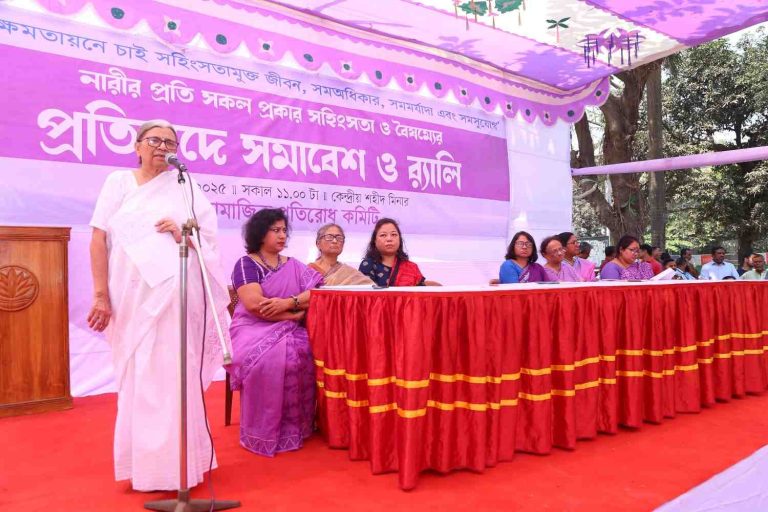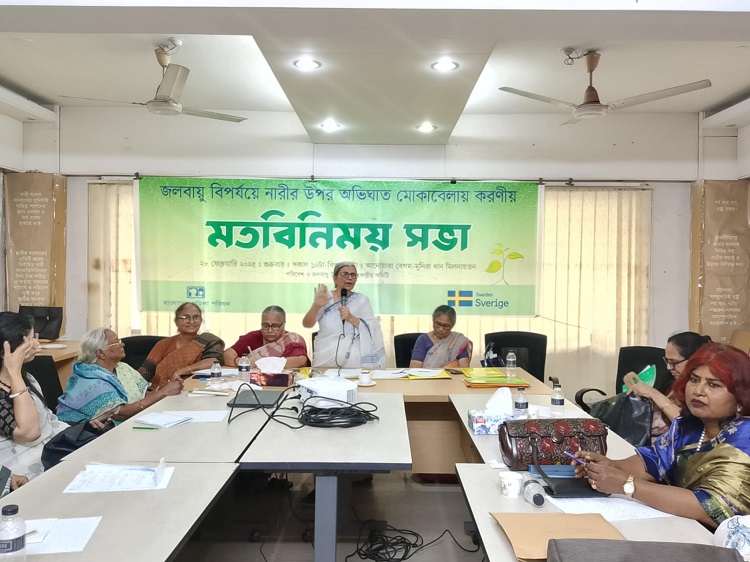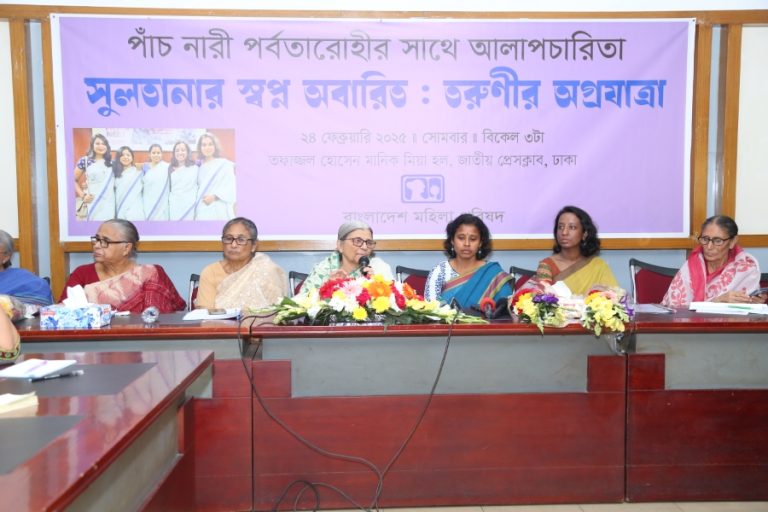Divisional Consultation Meeting on Civil Society-Led Alternative CEDAW program at Chattogram was held at 10 am on 3rd November, 2022. It was presided over by Professor Latifa Kabir, President of Bangladesh Mahila Parishad, Chattogram District Branch. Professor Swati Pal, Organizing Secretary of Bangladesh Mahila Parishad Chattogram District Branch was in charge of hosting the program. Feni University’s former vice-chancellor Professor Dr. Fosiul Alam was present as the chief guest. 80 people presented at the program that day.
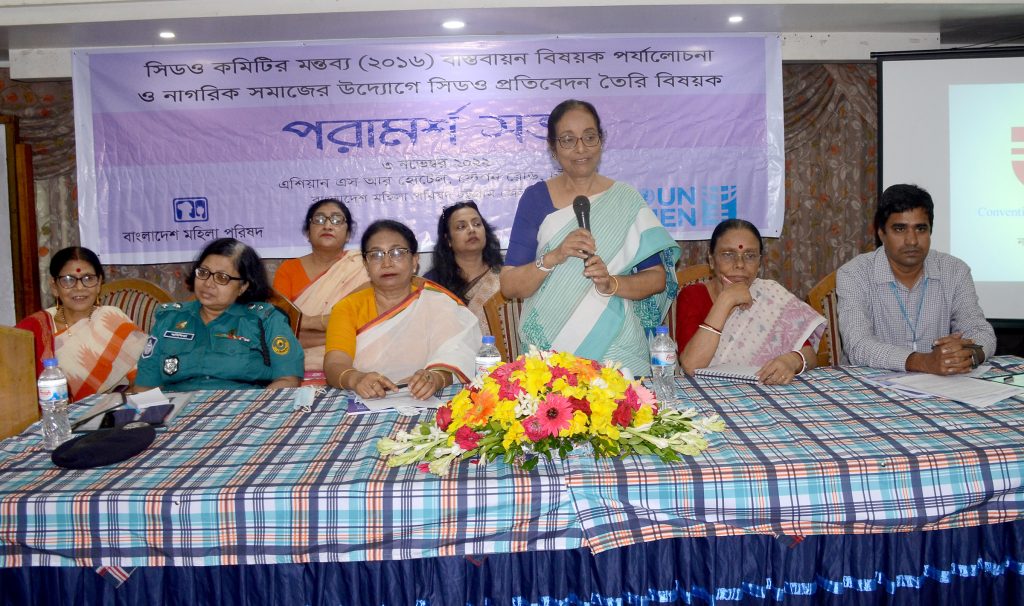
Sitara Shamim, General Secretary of Bangladesh Mahila Parishad Chattogram District Branch delivered the welcome speech at the end of the introduction session. She said that the CEDAW Charter was accepted on the 18th of December 1979. Bangladesh Mahila Parishad is working in light of the CEDAW Charter. She expressed the hope that she will get everyone’s cooperation.
Dil Afroz Begum, Finance Secretary of Bangladesh Mahila Parishad Central Committee said that the essence of the CEDAW Charter is to bind the government, to hold it accountable. She also said that they have established principles based on an analysis of 3 fundamentals.
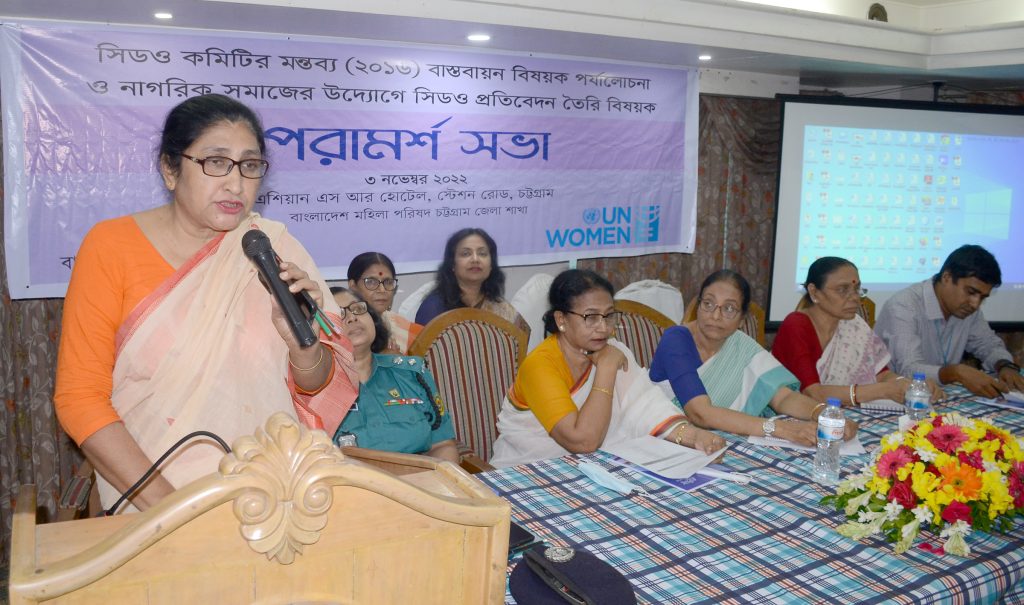
1. International Convention on the Human Rights of the women
2. Enact legislation providing for affirmative action for women
3. Emphasis on both public life and professional life.
There is no legal equality for women. Women’s reproductive role is not just her own, it is the responsibility of her family, society, and the state.
Fazlul Kabir Mintu, the organizer of the Bangladesh Trade Union Central Committee, said that discrimination is the main obstacle to our progress. He also said that men in garments earn more wages than women. Moreover, many garment workers do not want to become mothers because they do not even have a job after 120 days.
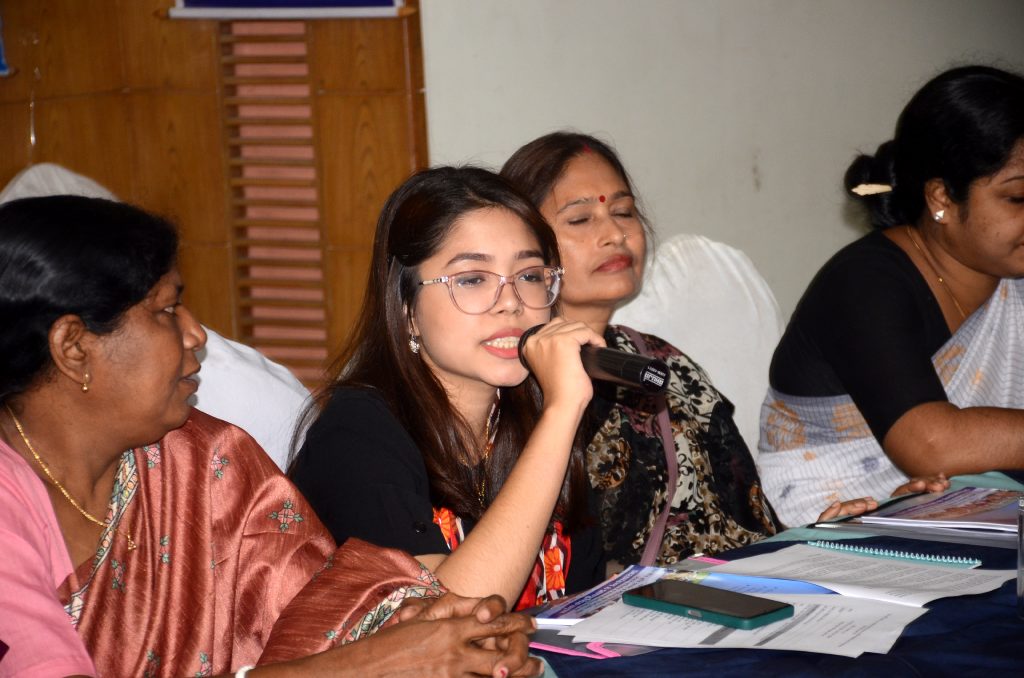
Dr. Ganesh Roy, Former Head Professor of the Mathematics Department of Chattogram University said that if discrimination against women can be highlighted in villages then success will come.
After the speeches of the guests, group work was presented. A total of 5 groups were divided.
The topics of the 5 groups were-
1. Getting justice for women
2. Prevention of violence against women
3. Economic and political empowerment of women
4. Social stereotypes and negative attitudes toward women and fundamental communalism are obstacles to the advancement of women
5. Women’s education and health
The program came to an end with a vote of thanks given by Professor Latifa Kabir.

